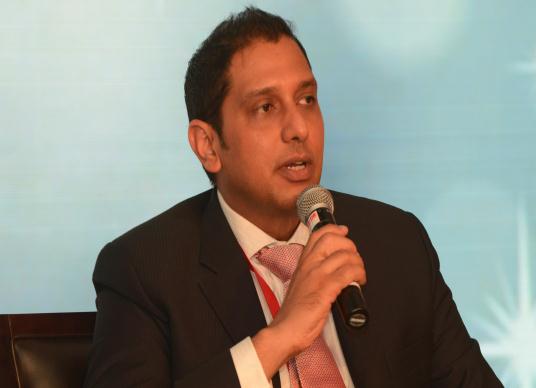
Steve Odak, CEO of iMarketVend, moderated a panel discussion at the Middle East Retail Forum (MRF) 2013 which examined the necessity and attractiveness of technologies for retailers to deliver superior in-store and multi-channel shopping experiences, inventory management and data analytics. It also looked into the question of why retailers in the Middle East are slow in adopting such technologies
There was a time when retailers engaged in one-to-one relationships with their customers, carrying on interesting conversations with them either directly or through informative and entertaining messages. But the sheer numbers of customers with their multifarious shopping preferences makes such personal relationships practically impossible today. The desire still remains, nevertheless. But what seems more in the realm of possibility is to leverage technology to gather data on consumer behaviour, process the data quickly, then respond to consumer demands. The faster such data is processed, the quicker is the retailer able to provide a customer-centric shopping experience.
Retailers worldwide are harnessing data from a wide range of touch-points to understand consumer behaviour and personalise the shopping experience to boost sales. But delivering the right message to the right consumer at the right time and right place involves investing in the right technology to perform complex analytics.
Maarten Jan de Wit, industry principal retail & wholesale, SAP Middle East & North Africa, says the future of retail will be all about being relevant to a customer through a personalised dialogue with the consumer in real time that offers the right combination of product assortment, price points and shopping convenience.
“Retailers need to use information to decipher who their customers are, where they are and how to give them personalised offers when it counts. Precision marketing and personalisation at the decision making point are key to achieving customer-centric retailing,” says Maarten.
Anand J Mehta, director, Asia-Pacific – retail vertical, Motorola Solutions, points to the irony of retailers today being exposed to a flood of data but starved of information. This happens when they pursue big data for reasons other than their primary objective – generating sales.
“The data explosion and smart, mobile devices are redefining shopper expectations. The key attributes of retail today are connectivity, predictive analytics, personalisation, context, location awareness, and consistency. But, retail is also a simple business of reselling finished products in a store environment. So even if data explodes, retailers must ask the same fundamental question – why are sales increasing or decreasing?” adds Mehta.
Odak says despite advancements in mature Middle East retail markets, retailers in the region have been slow and apprehensive about adopting technology. Many continue to see investment in technology as too premature to alter shoppers’ experiences or improve sales.
“The common excuse of retailers reluctant to invest in technology is that the Middle East is an emerging market, not sophisticated like Western markets. Also, new technology is expensive. My argument is that contrary to what many retailers here say, retail in the Middle East, particularly the UAE, is as sophisticated as any global market. So why would retailers here want to lose the opportunity to get ahead of the competition?” asks Maarten.
Vic Bageria, CEO, Savant Data System, agrees that retailers in the Middle East have always been apprehensive about investing in technology. However, it’s encouraging to see customer service driving the adoption of new technologies. “It took time for retailers in the region to accept people counting systems because they didn’t realise they could utilise the data to their advantage. Such systems gained acceptance only when international brands b egan to demand customer data from their franchise operators. With competition increasing, the focus has increasingly shifted to the volume and accuracy of customer data,” says Bageria.
“Retailers now want to know what they can do with the vast amounts of data to increase conversions. They realise they can be more proactive in serving their customers if they obtain real-time data and generate valuable intelligence that helps them manage their inventory, staff and other resources for better conversions. In-store technologies such as people counting are evolving into sophisticated people tracking systems that help retailers track customer behaviour in different sections of the stores, dwell time in different zones and manage queues at checkout counters,” adds Bageria.
“Consumers are adopting technology faster than retailers. So it’s crucial for retailers to leverage technology and big data to directly influence their shopping journey. Those who say it’s too early to invest in technology to understand their customers are underestimating them and their desire for multi-channel engagement and service,” concludes Mehta.
You must be logged in to post a comment.